The Homeprint blog
Stay up to date with all of the latest news about property and real estate, finances, energy efficiency, reducing risk, and technologies for your home.
We care about your data in our privacy policy
Recent blog posts

Homeprint is excited to announce the launch of its new

As the beauty of autumn sweeps in, it's the perfect time to prepare your home for the colder months ahead. Regular fall maintenance helps you avoid costly repairs and ensures your home stays safe and warm during winter. For those with older homes, additional tasks—like adding insulation or installing storm windows—are essential for maintaining energy efficiency and safety. Here's a comprehensive guide to fall maintenance, with extra tips for older homes.

In the evolving landscape of homeownership, understanding the full spectrum of costs associated with owning a home is crucial. Beyond the initial purchase price, there are numerous ongoing expenses that can significantly impact a homeowner's finances. Homeprint, a pioneering platform, is making waves by helping homeowners gain a comprehensive understanding of their Total Cost of Ownership (TCO). This article explores how Homeprint is assisting homeowners and why this knowledge is essential for anyone looking to manage their home expenses more effectively.
All blog posts

Homeprint is excited to announce the launch of its new

As the beauty of autumn sweeps in, it's the perfect time to prepare your home for the colder months ahead. Regular fall maintenance helps you avoid costly repairs and ensures your home stays safe and warm during winter. For those with older homes, additional tasks—like adding insulation or installing storm windows—are essential for maintaining energy efficiency and safety. Here's a comprehensive guide to fall maintenance, with extra tips for older homes.

In the evolving landscape of homeownership, understanding the full spectrum of costs associated with owning a home is crucial. Beyond the initial purchase price, there are numerous ongoing expenses that can significantly impact a homeowner's finances. Homeprint, a pioneering platform, is making waves by helping homeowners gain a comprehensive understanding of their Total Cost of Ownership (TCO). This article explores how Homeprint is assisting homeowners and why this knowledge is essential for anyone looking to manage their home expenses more effectively.

In an era where technology and data drive nearly every aspect of life, the real estate industry is no exception. Homeprint is at the forefront of this revolution, leveraging artificial intelligence (AI) and comprehensive data analysis to provide homeowners with actionable insights. By harnessing the power of AI, Homeprint offers personalized recommendations to help homeowners understand and increase their home's value. This article delves into the innovative ways Homeprint is transforming homeownership and empowering homeowners to make informed decisions.

Over the past few years, a notable shift has occurred in the real estate market. Faced with escalating home prices, rising interest rates, and economic uncertainty, many individuals and families have opted to invest in their current homes rather than purchasing new ones. This trend has given rise to a booming home improvement industry and presented a unique opportunity for innovative solutions like Homeprint to emerge.

The real estate industry has traditionally revolved around transactional services, where agents facilitate the buying and selling of properties. However, a significant shift is occurring as real estate professionals evolve to encompass homeowner lifecycle management. This transition not only enhances the value they provide to clients but also ensures sustained relationships and continued relevance in a rapidly changing market.

In the real estate industry, the relationship between agents and clients shouldn’t end at the closing table. Providing ongoing value after the sale is essential for building lasting relationships, fostering trust, and encouraging referrals. Homeprint, a comprehensive home management platform, is an invaluable tool that real estate agents can offer to their clients to help them manage their homes more efficiently, improve energy efficiency, enhance property value, and keep track of warranties and documents.

Making your home more energy efficient is not only a practical way to reduce your utility bills, but it also contributes to a more sustainable environment. By implementing a series of strategic improvements, ranging from simple, cost-effective measures to more substantial investments, you can significantly lower your energy consumption and enhance the comfort of your living space. This roadmap will guide you through various steps to increase your home's energy efficiency, starting with the least expensive options and progressing to more comprehensive solutions. Whether you're motivated by financial savings, environmental concerns, or both, these actionable strategies will help you create a more energy-efficient home.

The value of your home is more than just a number on a property listing; it's a reflection of various tangible and intangible factors that contribute to its overall worth. Whether you're planning to sell, refinance, or simply want to ensure your investment is appreciating, understanding these contributing factors is crucial. Additionally, modern technology and services like Homeprint can provide actionable insights to not only improve your home’s value but also enhance its energy efficiency and extend the lifecycle of its systems.

In a world where technology and complexity reign supreme, our homes stand as the sanctuary where we seek solace and comfort. Yet, for many, navigating the intricacies of home maintenance, appliance usage, and safety protocols can feel like deciphering an ancient script without a Rosetta Stone. Enter the humble user manual—a beacon of guidance and clarity in the often murky waters of domestic life.

In 2024, artificial intelligence (AI) has firmly entrenched itself as a pivotal force in the real estate industry, revolutionizing how properties are bought, sold, and managed. From enhancing customer experiences to optimizing operations, AI's influence is reshaping every facet of the market.

When considering purchasing a home, prospective buyers often focus on the sale price. However, the total cost of homeownership extends far beyond this initial expenditure. Understanding these additional costs is crucial for making an informed financial decision and ensuring long-term affordability. This article delves into the various components that contribute to the total cost of owning a home.

Welcome to the world of asset management, homeowners! Think of asset management as a savvy strategy for taking care of what is likely your most valuable possession—your home. It’s all about making smart decisions to keep your home running smoothly, looking great, and growing in value. Whether it's routine maintenance, smart upgrades, or keeping track of important documents, asset management helps you get the most out of your investment while ensuring a comfortable, stress-free living environment. Let’s dive into the world of asset management and see how it can make your life easier and your home even better, especially with the help of a handy tool like Homeprint!

In the ever-evolving realm of sustainable architecture and eco-friendly living, the concept of the "Passive House" has emerged as a beacon of innovation and efficiency. Designed to drastically reduce energy consumption while maintaining optimal comfort levels, Passive Houses represent a paradigm shift in residential construction. But what exactly is a Passive House, and what are the key components that make up its construction?

In the hustle and bustle of daily life, it's easy to take for granted the complex systems that keep our homes running smoothly. From electricity to water, heating to cooling, our homes rely on a variety of utilities to provide comfort, convenience, and functionality. However, understanding these utilities goes beyond simply paying the bills; it's about making informed decisions that can positively impact both our households and the environment. Here's why it's crucial to grasp the intricacies of your home's utility systems and how it can lead to better decision-making.

Windows play a crucial role in a home's overall system, contributing to its functionality, comfort, and energy efficiency. Are you considering upgrading your windows? It’s a decision that can greatly enhance the comfort, aesthetics, and energy efficiency of your home. However, before you dive into this project, it’s essential to understand the costs involved, the benefits you can expect, and how it might impact your expenses in the long run.

In the quest for energy efficiency and cost savings, homeowners are increasingly turning to electric heat pumps as a smart solution for heating and cooling their homes. Unlike traditional heating systems that rely on fossil fuels, electric heat pumps utilize renewable energy sources to provide efficient and environmentally friendly heating and cooling. From reducing utility bills to improving overall home performance, installing an electric heat pump offers a multitude of benefits.

As the world commemorates Earth Day, the urgency of addressing climate change has never been more palpable. The call to action resounds across industries, urging businesses and individuals alike to step up their efforts in combating environmental degradation. In this pivotal moment, Homeprint stands at the forefront, making a resolute pledge to champion sustainability and energy efficiency in the housing sector.

In today's dynamic real estate market, making informed investment decisions requires more than just gut instincts and market knowledge. With the advent of predictive analytics and advancements in data science, investors now have powerful tools at their disposal to analyze trends, forecast market movements, and identify lucrative opportunities with greater precision than ever before. In this article, we explore how predictive analytics is transforming the landscape of real estate investment and empowering stakeholders to navigate the market with confidence.

Owning a home comes with a myriad of responsibilities and challenges, from routine maintenance to unexpected emergencies like fire, theft, or floods. Amidst these challenges, keeping track of your belongings and essential documents can be daunting. However, with the advent of inventory management systems, homeowners now have a powerful tool at their disposal to streamline this process. Let's delve into the benefits of utilizing such systems and how they can prove invaluable in various scenarios.
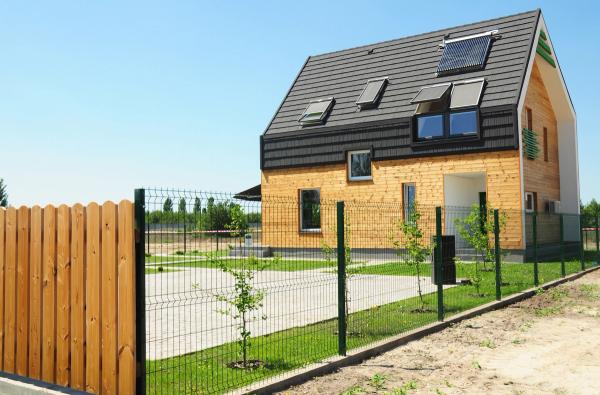
As the global community grapples with the urgent need for environmental conservation and sustainability, the role of building codes in shaping our built environment has come under scrutiny. Today's building codes, while aimed at ensuring safety and structural integrity, often fall short in addressing the pressing challenges of climate change, resource depletion, and energy efficiency. To achieve a more sustainable housing stock and secure a greener future, a fundamental overhaul of building codes is imperative.
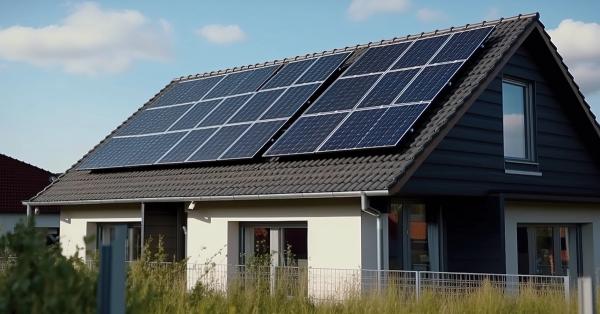
In the ongoing quest for sustainability and cost-effectiveness, homeowners are increasingly turning to innovative solutions to make their homes more energy-efficient. With the advent of advanced technology and data analytics, there exists a wealth of information that can be leveraged to provide insights and recommendations tailored to individual properties. By combining property system information with utility usage data, homeowners can gain valuable insights into their energy consumption patterns and discover actionable strategies to enhance efficiency while reducing environmental impact and utility costs.
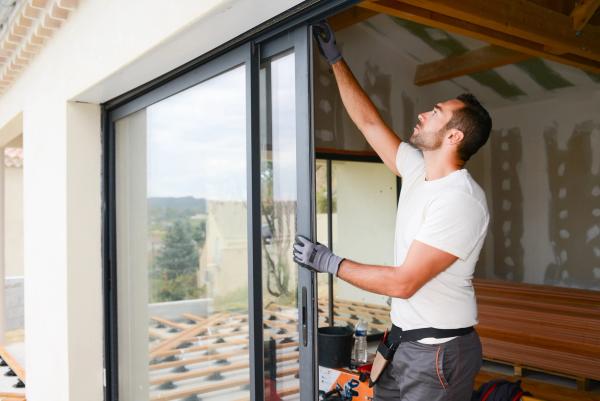
For many prospective homebuyers, finding the perfect home often means compromising on certain features or settling for a property that needs some TLC. However, with the innovative Purchase Plus Improvements mortgage program, Canadians can purchase a home and make necessary upgrades or renovations right from the start, turning their dream home into a reality.

Embarking on a

Embarking on a home renovation project is an exciting endeavor that can breathe new life into your living space and increase the value of your property. However, the prospect of renovation can also be daunting, especially when considering the potential costs involved. Fortunately, with careful planning and strategic decision-making, it's possible to create a budget-friendly renovation plan that achieves your desired outcomes without breaking the bank. In this article, we'll explore practical tips and strategies for creating a renovation plan that is both cost-effective and impactful.

For many Canadians, purchasing a home is one of the most significant financial decisions they'll ever make. It's a process that requires careful planning, financial stability, and understanding of the intricacies involved. In Canada, securing a mortgage is a crucial step towards homeownership, and it involves several stages, from pre-approval to closing. Additionally, the Canada Mortgage and Housing Corporation (CMHC) plays a pivotal role, particularly for buyers with smaller down payments.

Embarking on a home renovation project is an exciting opportunity to enhance your living space and increase the value of your property. However, financing such endeavors can sometimes pose a challenge. Fortunately, there are various options available to homeowners to fund their renovation projects. In this article, we'll explore some of the most common financing options, helping you choose the one that best suits your needs and circumstances.

Investing in Real Estate in Canada: Understanding Mortgage Rules and Details

In recent years, the sharing economy has transformed the way people travel and find accommodation. One of the leading platforms in this space is Airbnb, which allows homeowners to rent out their properties to travellers looking for unique and affordable lodging options. While Airbnb can offer lucrative income opportunities for property owners, it also comes with its own set of challenges and considerations. In this article, we'll explore the pros and cons of renting out your property on Airbnb, including legal considerations and potential income opportunities.

The Green Button initiative is a program that was developed by the U.S. Department of Energy (and now finally available in Canada) that enables utility customers to securely access their energy usage data in a standardized electronic format. Its aim is to provide consumers with easy access to their energy data, allowing them to better understand their energy usage patterns and make more informed decisions about energy consumption.
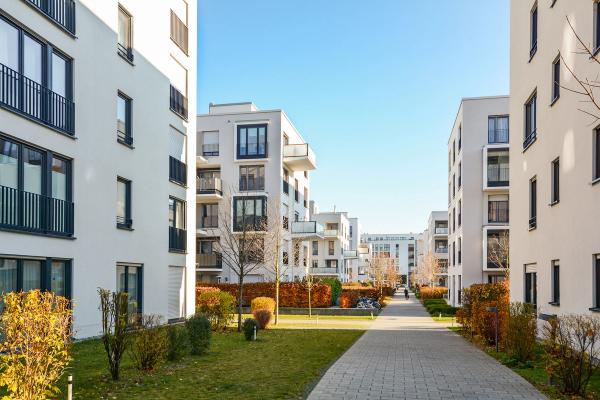
Real estate has long been considered a cornerstone of wealth building, and Canada offers a robust and diverse market for investors looking to capitalize on this avenue. With its stable economy, growing population, and various investment opportunities, Canada presents a favourable landscape for individuals seeking to build long-term wealth through real estate investments.

In today's digital age, the power of data extends far beyond just business and finance. Property data, in particular, has become a valuable resource for homeowners looking to reduce risks and make informed decisions about their properties. From assessing safety hazards to predicting potential issues, leveraging property data can significantly enhance home safety and security measures.

At Homeprint, we're dedicated to making home management effortless and efficient. That's why we're excited to introduce our Home Systems component Tool, designed to help you store and organize vital information about every aspect of your home, from the building envelope to electrical, heating, cooling, and plumbing systems.

Owning a home is a significant investment, and like any investment, it requires regular maintenance to preserve its value and ensure the safety and comfort of those who live within it. While some maintenance tasks may seem daunting, knowing the essentials can make the process more manageable. Here are ten essential home maintenance tasks every homeowner should know:

Owning a home is a significant milestone, and protecting it with the right insurance policy is essential for peace of mind. Home insurance provides financial protection against unforeseen events such as natural disasters, theft, and liability claims. However, with numerous insurance providers and policy options available, choosing the right coverage can be overwhelming.

Selling a home is often a complex and emotional process, involving not only the transfer of property but also the passing on of a living space that holds countless memories. In today's technologically advanced world, homeowners can elevate the home selling experience by offering a comprehensive digital record to the next homeowner. This article explores the reasons why providing a digital record can significantly enhance the selling process and benefit both sellers and buyers.

In the age of rapid technological advancements, the digitization of homes has become a compelling and innovative way to preserve the details and history of our living spaces. Just as we meticulously document our personal and family histories, digitizing our homes allows us to create a comprehensive digital archive that can be passed down through generations. This article explores the various reasons why individuals should consider embracing this digital transformation to safeguard the rich tapestry of their homes.

In the fast-paced world of real estate, staying informed about the value of your property is crucial. Homeowners now have an innovative tool at their fingertips, thanks to Homeprint's groundbreaking new feature that allows them to view and track their property value. In this blog post, we'll delve into the details of this exciting addition and explore the numerous benefits it brings to homeowners.


In today's real estate market, homeowners are constantly seeking ways to increase the value of their properties. Whether you're planning to sell soon or simply want to enhance your investment, there are several key strategies you can employ to boost your home's value in 2023. From smart technology integration to energy-efficient upgrades and aesthetic enhancements, this article outlines a comprehensive guide to maximizing your property's worth.

Passive homes, also known as Passive House, are homes designed to use minimal energy for heating and cooling. These homes are designed to be highly insulated, airtight and use natural light and ventilation to maintain a comfortable indoor temperature. Passive homes are designed to be highly efficient, using up to 90% less energy than a traditional home, making them a sustainable and environmentally-friendly option for those looking to build a new home. There are numerous benefits to building a passive home. Firstly, they are incredibly energy efficient, which can result in lower energy bills and a reduced carbon footprint. This makes passive homes an excellent option for those looking to reduce their environmental impact. Additionally, passive homes are typically built with high-quality insulation, which can improve indoor air quality and reduce noise pollution. Another benefit of passive homes is their durability and longevity. These homes are built to last, using materials that are designed to withstand the elements and last for many years. This means that passive homes are an investment that will continue to pay off over time, as they will require less maintenance and repairs than traditional homes. When it comes to building a passive home, there are several building methods to choose from. One of the most popular methods is the use of structural insulated panels (SIPs). SIPs are prefabricated panels made from a foam core sandwiched between two sheets of structural board. This method of construction provides excellent insulation and is quick and efficient to install. Another popular building method for passive homes is the use of insulated concrete forms (ICFs). ICFs are made from expanded polystyrene and are used to form the walls of a building. They provide excellent insulation and are also highly durable and long-lasting. When choosing materials for a passive home, there are several options to consider. For example, you could opt for double-glazed windows to improve insulation and reduce heat loss. You could also consider using sustainable materials such as bamboo flooring or recycled materials for your roofing and siding. In conclusion, passive homes are a highly sustainable and efficient option for those looking to build a new home. They offer numerous benefits, including lower energy bills, improved indoor air quality, and reduced environmental impact. When building a passive home, there are several building methods and materials to choose from, making it a versatile and customizable option.
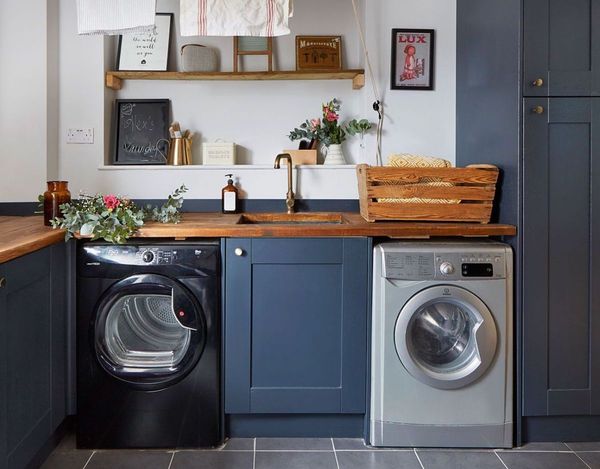
The circular economy is an economic system that emphasizes the reusability of resources and the reduction of waste. In the context of homes and electronics, this system can have a profound impact on the way we use and dispose of our appliances and other electronic devices. At Homeprint, we're working towards building a more sustainable approach to electronics and appliances with our inventory tool, and by working with brands, we can provide offers to homeowners to return the old models in exchange for newer products. And by doing so, we're returning some of the valuable resources to produce products. In this article, we will explore the benefits of a circular economy for homeowners and discuss the ways in which it can improve the sustainability and efficiency of our homes and electronics. One of the primary benefits of a circular economy for homeowners is the reduction of waste. According to a recent study, the average household in the United States produces over 5,000 pounds of waste each year, with much of this waste coming from old and broken appliances. In a circular economy, however, these appliances would be refurbished and reused, reducing the amount of waste that ends up in landfills. Another benefit of a circular economy is increased efficiency. For example, the average refrigerator lasts only 9 years, while washing machines last just over 10 years. In a circular economy, however, appliances could be refurbished and updated to extend their lifespan, reducing the need for homeowners to purchase new appliances as often. This not only reduces waste, but also saves homeowners money in the long run. In addition, a circular economy would also improve the sustainability of our homes and electronics. This is because appliances and electronics that are refurbished and reused use fewer resources to produce, as they don’t need to be built from scratch. This can reduce the carbon footprint of homes and electronic devices, helping to protect the environment and conserve energy. Finally, a circular economy would also create jobs and economic growth. As more people adopt circular economic practices, the demand for refurbished and reused appliances would increase, creating new opportunities for workers and businesses. Additionally, the reduced waste and increased efficiency would lower costs for both businesses and consumers, providing a win-win solution for everyone involved. To wrap up, a circular economy is a smart and sustainable approach to the use and disposal of our appliances and electronics. By reducing waste, increasing efficiency, improving sustainability, and creating jobs and economic growth, the circular economy can benefit homeowners and the environment in many ways. If you are looking to make a positive impact on your home and the world around you, consider adopting circular economic practices today.

A mortgage is a loan taken out to purchase a property. In Canada, mortgage loans can either be insured or uninsured. The main difference between the two is the level of protection offered to the lender in case of default.

Introduction

Electric heat pumps are a popular choice for heating homes and buildings in colder climates. They are highly energy-efficient and can be used as both a heating and cooling system. However, there are some limitations to their effectiveness in extremely cold temperatures.

Creating a budget is an important step in managing your finances and ensuring that you are able to meet your financial goals. A budget can help you to better understand your income and expenses, and can help you to identify areas where you may be overspending. Here are some tips for creating a budget and sticking to it.

Going on vacation is always exciting, but it can also be a bit nerve-wracking to leave your home behind. Before you head out, there are a few things you should do to ensure your home stays safe and secure while you're away.

Recession can be a difficult time for many people as it often leads to job loss, pay cuts, and a decrease in overall spending power. However, it is possible to save money during a recession if you are mindful of your spending and make some changes to your lifestyle. In this article, we will explore some practical tips on how to save money during a recession.

Home safety and security is an important topic that should be taken seriously by all homeowners. There are many ways to reduce risk around your home, including simple steps like securing doors and windows, installing security cameras and alarms, and being aware of your surroundings.

Keeping a record of your home's documents in a digital format has a plethora of benefits that can save you time, money and stress. From mortgage documents to insurance policies, having all of your important papers organized and easily accessible can make your life a lot easier.

1. Determine your budget: Before you start looking for a home, it's important to determine how much you can afford to spend. This will help narrow down your search and ensure that you don't fall in love with a home that is out of your price range.

When it comes to heating your home, there are a variety of options available. One popular option is a gas furnace, which uses natural gas to heat your home. However, another option that is becoming increasingly popular is an electric heat pump. In this blog post, we will discuss the benefits of removing a gas furnace and installing an electric heat pump.

When it comes to heating and cooling systems, there are a variety of options available to homeowners. Two of the most popular options are electric and geothermal heat pumps. Both types of heat pumps use electricity to transfer heat, but they do so in different ways and with different levels of efficiency.

Making your home more energy efficient will not only help you reduce your monthly bills but also make an impact to the planet by reducing greenhouse gasses. Here are 5 quick tips to make your home more energy efficient in 2023! 1. Upgrade your insulation: Proper insulation is essential for keeping your home warm in the winter and cool in the summer. Upgrading your insulation can help reduce energy consumption and save you money on your energy bills.

If you've ever wondered the history of your home, you're not alone. If those walls could talk, what would they say? Are there layers of wallpaper or paint lurking behind it's surface? Who painted those walls or installed the wallpaper, or even removed it? Those are the questions the Homeprint is looking to answer.

Introduction

Home inspections are essential during a real estate transaction to make an educated decision and for homeowners to maintain their home. Whether you are buying, selling, or maintaining, you need to know the condition of the home and its components. This is where a home inspector comes in.

You probably know about many moving day tips and hacks, but we have assembled a master list with the best moving tips to help you have a smooth transition from planning to unpacking the last item.

During your home search, your realtor is your guru, your guide, and one of the main players in your home buying team. They will walk you through the home buying process as smoothly as possible. But not every real estate agent is created equal. Experience and knowledge levels vary; some realtors are experts in specific local markets or have experience buying and selling certain types of properties. Before starting your home search, it is essential to have the right real estate agent by your side.
